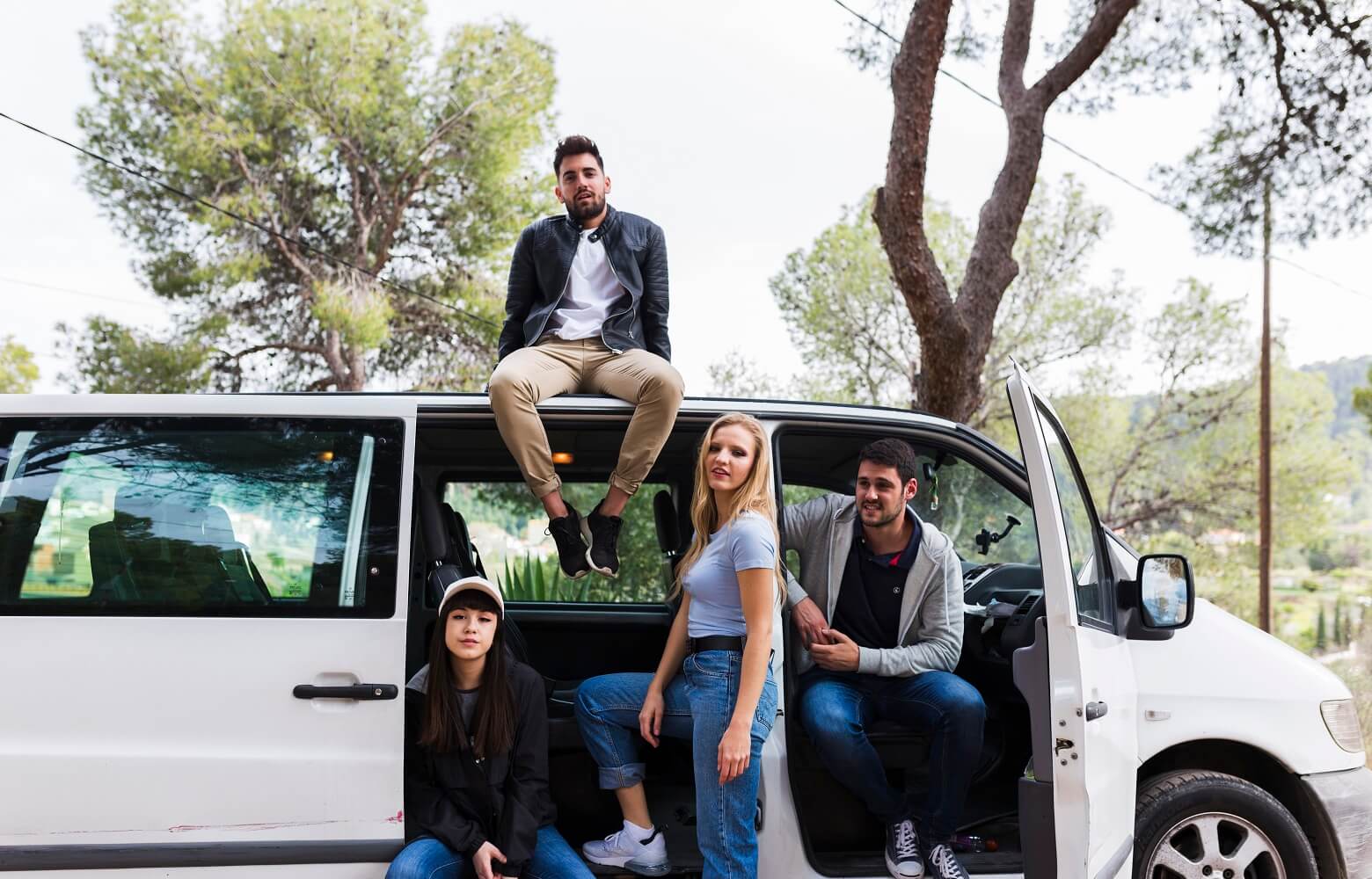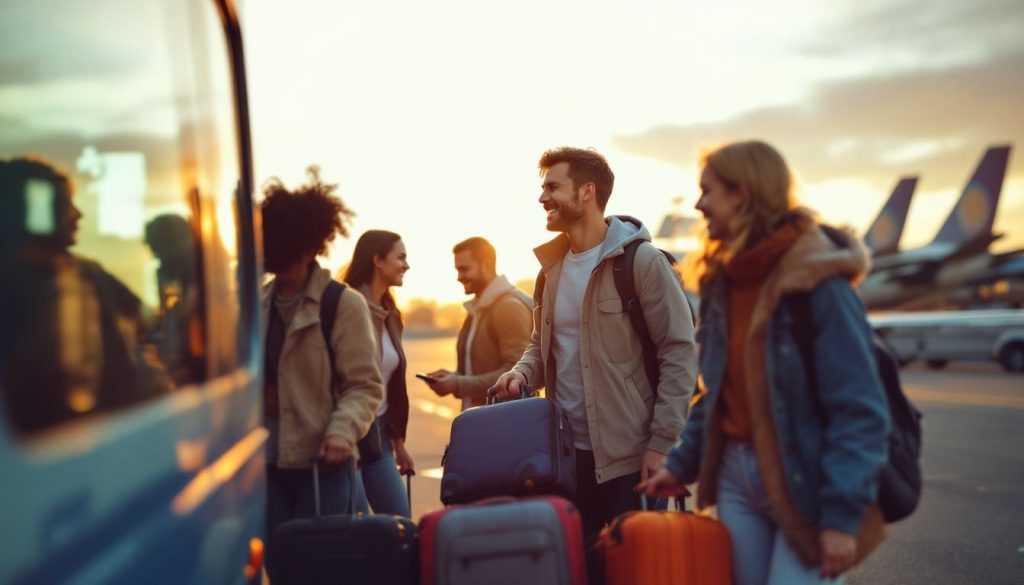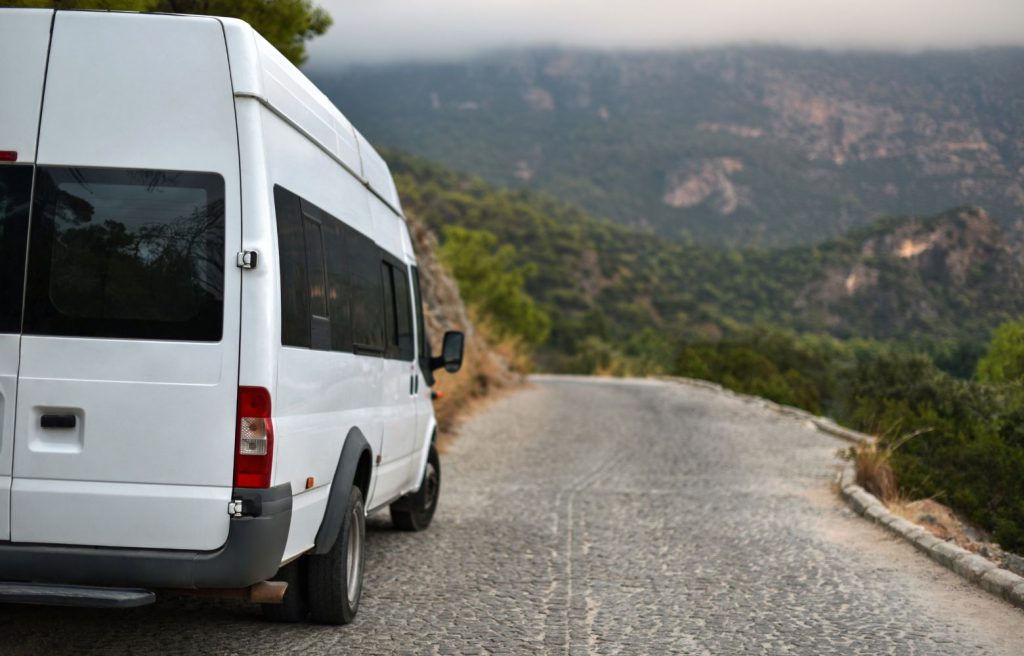Planning a trip can be hard. One fact is that group travel started in the 17th century. This post will tell you how it has changed to help plan trips better. Minibus Hire Essex makes it easier.
Evolution of Group Travel
Group travel has changed a lot over time. People have always travelled together for trade, exploration, and fun.
From ancient civilisations to modern times
Group travel has a long history. It started in the 17th century with young nobles from western and northern Europe. They went on trips together, exploring places like Italy. This early form of group travel was known as the Grand Tour.
From then to now, group travel has changed a lot.
Over time, more people began to join these trips. Group travel allowed them to feel adventurous and try new things together. Today, it includes organised tours and packages for everyone, not just nobles.
People can explore new cultures and make memories through shared experiences on these journeys. The growth of tourism helped shape modern group vacations into what we see today in the group travel industry evolution.
Reasons for group travel (trade, exploration, religion, leisure)
Group travel has many reasons. People have travelled together for trade, exploration, religion, and leisure. In ancient times, groups formed to trade goods. They moved in caravans across long distances.
This helped them share resources and build connections.
Exploration also drove group travel history. Groups of adventurers would explore new lands together. They felt safer in numbers while facing the unknown. Religion played a part too; pilgrims often traveled in groups to holy sites for worship and reflection.
Leisure is another reason people travel together today. Friends or families go on trips to create shared memories and enjoy new experiences as a team. Group travel allows everyone to discover new cultures confidently with support from each other for adventures like tasting street food or visiting historic places firsthand.
Early modes of group travel (caravans, trains, ships)
Caravans, trains, and ships were some of the earliest modes of group travel. Caravans moved people and goods across deserts. They allowed traders to connect with different cultures.
Trains emerged in the 19th century. They made it easier for groups to travel long distances quickly. This change helped many explore new places together.
Ships also played a key role in group travel. People sailed on ships to reach new lands or trade routes. The Grand Tour often included stops at various ports in Europe. Group travel on these vessels made adventures accessible for many, not just nobles.
Impact of Industrial Revolution
The Industrial Revolution changed how people travelled in groups. New trains and steamships made it easier for large numbers to explore new places together.
Rise of organised group tours
Organised group tours began to rise in the 19th century. These trips changed travel from a personal journey to a shared experience. The Grand Tour was popular among young nobles in Europe during the 17th to early 19th centuries.
It allowed them to explore art and culture, mainly in Italy.
Group travel became more accessible over time. Now, it includes many types of tours that suit different interests and budgets. Today’s travellers can join guided visits or choose all-inclusive packages with ease.
Group travel products offer chances for adventure and fun without worrying about details.
Expansion of rail and motorway networks
The expansion of rail and motorway networks changed group travel forever. In the 19th century, trains became popular for moving larger groups. Friends and families could easily plan trips together.
They could visit towns and cities in a short time. Roads improved, making it easier to travel in cars and buses.
Group tours grew as people explored more places. Railways connected important destinations, while motorways made road trips possible. This shift allowed friends to discover new cultures and enjoy experiences together.
Modern organised tours build on this history of group travel by offering exciting packages for everyone, from beach resorts to cultural sites. The possibilities are endless because of these advancements in transport methods.
Influence of technological advancements (steamships, aeroplanes)
Technological advancements changed group travel greatly. Steamships and aeroplanes made it easier to explore new places. People could travel faster and further than ever before. The rise of organised group tours became possible due to these innovations.
Group travel evolved from the Grand Tour era to include modern packages that fit all types of travellers. With steamships, large groups crossed oceans for adventures in Europe. Aeroplanes allowed for quick trips across countries, making it easy to visit popular destinations like beach resorts or cultural sites.
This change helped many people bond over shared experiences during their journeys together.
Growth of Group Tourism
After World War II, group tourism grew rapidly. People wanted to travel together for fun and adventure. All-inclusive packages became popular during this time. Big beach resorts and theme parks drew many visitors.
Cultural sites also welcomed group travellers. This trend changed how people explored new places. For more insights on this journey, read further!
Post-World War II boom
The Post-World War II boom changed group travel. Many people wanted to explore new places after the war. Group tourism grew rapidly during this time. Travel became more accessible to everyone, not just nobles.
People found joy in taking trips together.
All-inclusive packages emerged as a popular choice for travellers. Beach resorts and theme parks attracted large groups of friends and families. These destinations allowed people to create shared memories and bond with each other while enjoying their holidays.
The rise of organised group tours fostered connections among travellers, making experiences more enjoyable for all involved.
Emergence of all-inclusive packages
All-inclusive packages began to rise after World War II. These packages made travel easier and more enjoyable for groups. They often include flights, hotels, meals, and activities in one price.
This change appealed to many people looking for a hassle-free vacation. It allowed travellers to focus on fun instead of planning.
Group travel agencies quickly adopted this trend. People could explore popular destinations like beach resorts or theme parks without stress. Shared experiences helped strengthen friendships among travellers.
Group adventures became more than just trips; they turned into memorable events that created lasting bonds.
Popular destinations for group travel (beach resorts, theme parks, cultural sites)
Group travel often takes people to popular destinations like beach resorts, theme parks, and cultural sites. Beach resorts are great for relaxation and fun in the sun. Families or friends can enjoy swimming, water sports, and shared meals by the sea.
These places help create lasting memories.
Theme parks attract groups with thrilling rides and entertainment options. They offer a chance for shared excitement among friends or family members. Cultural sites also draw group travellers who want to explore history together.
Visiting ancient landmarks allows people to learn while bonding over new experiences. Group travel enriches these adventures by connecting people through shared goals and interests.
Present Day Group Travel
Group travel today shows new trends and preferences. Many people now want sustainable trips that offer real experiences. Social media plays a big role in how groups plan their journeys.
Changing preferences and trends
People are changing how they travel in groups. There is a growing focus on sustainable and experiential travel. Many want to explore new cultures and places while being mindful of the environment.
Group travel now helps create lasting memories and strengthens friendships.
Social media plays a big role in this change. Friends share their adventures online, inspiring others to join group trips. As more people seek these experiences, group tours have become popular again since the rise after World War II.
The history of group travel shows how it has evolved into a fun way for everyone to connect and discover together.
Focus on sustainable and experiential travel
Sustainable and experiential travel is becoming more popular. Group travel allows people to explore new places while caring for the environment. Travellers seek shared experiences that connect them with local cultures.
They enjoy tasting street food or visiting ancient sites that tell stories of the past.
Group trips help create memories together, which strengthens friendships. Sustainable practices, like supporting local businesses, enhance these journeys. Historical group tours have changed from exclusive trips for nobles to accessible adventures for everyone.
Today’s group tours focus on meaningful experiences, making travel enjoyable and responsible at the same time.
Influence of social media on group travel planning
Social media has changed how people plan group travel. It helps travellers connect and share ideas. They can see photos and reviews from friends or strangers who have been to the same places.
This sharing makes it easier for people to feel adventurous. Group trips often include experiences like trying street food or exploring ancient sites.
Today, group travel agencies use social media to promote tours and packages. Many planners find inspiration online for popular destinations such as beach resorts and theme parks. Social media also allows friends to stay in touch while planning trips together.
As a result, group travel continues to grow because of the strong connections formed through shared memories and experiences.
Conclusion
Group travel has changed a lot over the years. It started with nobles in the 17th century and grew into a common way for people to explore. Today, many enjoy trips with friends or family.
This kind of travel makes memories that last a lifetime. Group adventures will continue to bring people together and create shared experiences.






